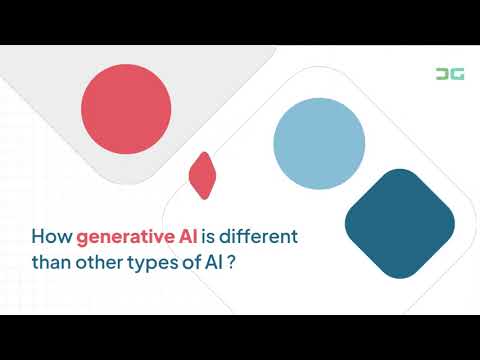
Generative AI is a type of AI that, as this name suggests, generates new content. This is in contrast to other types of AI, like discriminative AI, which focuses on classifying or identifying content that is based on preexisting data. Generative AI is often used in applications such as image generation, video synthesis, language generation, and music composition, but to really understand this new tool, we need to know first where it fits in the broader AI landscape. The term AI, which is artificial intelligence, is an umbrella term that encompasses several different subcategories, including generative AI. These subcategories are used to perform different tasks. For example, reactive machines are used in self-driving cars. Limited memory AI forecasts the weather. Theory of mind powers virtual customer assistance. Narrow AI generates customized product suggestions for E-commerce sites. Supervised learning identifies objects from things like images and video. Unsupervised learning can detect fraudulent bank transactions, and reinforcement learning can teach a machine how to play a game. These are only a few of the subcategories, and generative AI models fall into a lot of these categories, and honestly, it’s only growing. These other types of AI may still generate content, but they do it as a side effect of their primary function. Generative AI is specifically designed to generate new content as its primary output. Whether this is text, images, product suggestions, whatever, that’s what generative AI is designed to do.
#generativeai #ai
Video Source



